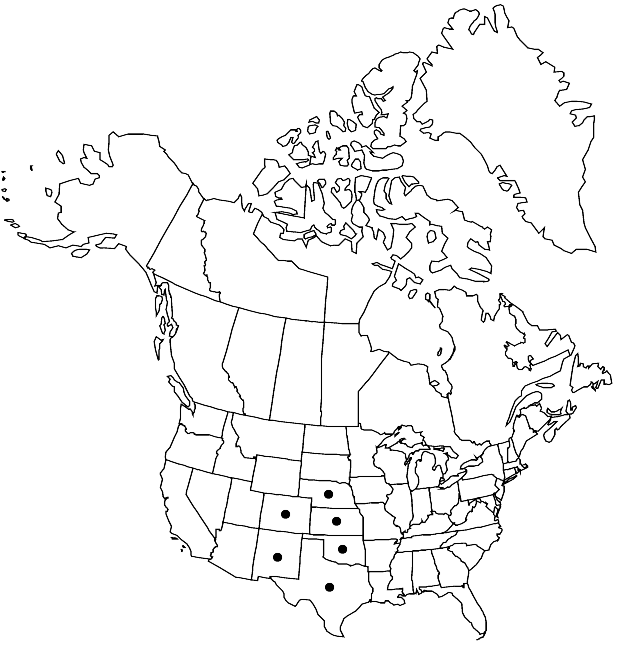Physaria ovalifolia
Novon 12: 326. 2002.
Perennials; caudex simple or branched, (thickened by persistent leaf-bases); densely pubescent (foliage usually scabrous), trichomes (sessile or short-stalked), several-rayed, rays furcate near base, (usually strongly umbonate, roughly tuberculate, less so over umbo). Stems few to several from base, erect or outer decumbent, 0.5–2.5 dm. Basal leaves: blade suborbicular to elliptic or ovate or deltate, 0.5–2 (–6.5) cm, margins entire or shallowly dentate. Cauline leaves: (proximal shortly petiolate, distal usually sessile); blade narrowly elliptic or obovate, (0.5–) 1–2.5 (–4) cm, margins entire. Racemes compact, (± subumbellate to densely corymbiform, elongated or not). Fruiting pedicels (usually spreading at right angles, sometimes nearly erect, ± straight), 5–15 (–20) mm, (stout). Flowers: sepals ± elliptic, 4.5–7 (–8.5) mm, (median pair thickened apically); petals (sometimes white), suborbicular to obovate or obdeltate, 6.5–15 mm, (base narrowing to broad claw, apex sometimes emarginated). Fruits (sessile or shortly stipitate, less than 1 mm), subglobose to broadly ellipsoid, inflated or slightly compressed (terete or subterete), (4–) 5–8 (–9) mm; valves (not retaining seeds after dehiscence), glabrous; replum as wide as or wider than fruit; ovules 8–16 per ovary; style 4–8 (–9) mm. Seeds flattened.
Distribution

Colo., Kans., N.Mex., Nebr., Okla., Tex.
Discussion
Subspecies 2 (2 in the flora).
Selected References
None.
Key
| 1 | Caudices branched (well-developed); petals usually yellow, rarely white, 6.5-12(-14) mm, usually 1.5 times or less as long as sepals; racemes usually not elongated (subumbellate). | Physaria ovalifolia subsp. ovalifolia |
| 1 | Caudices usually simple; petals white, (9-)11-15 mm, often 2 times as long as sepals; racemes usually elongated. | Physaria ovalifolia subsp. alba |
"not" is not a number. "elongated" is not a number."thick" is not a number."dm" is not declared as a valid unit of measurement for this property.